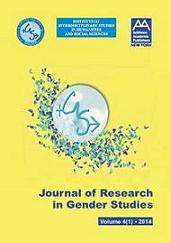The Analysis of Possessing the Secret of Joy in a Post-colonial Framework
The Analysis of Possessing the Secret of Joy in a Post-colonial Framework
Author(s): MOHAMMAD NASSER VAEZY, MEHDI DEHGHANISubject(s): Gender Studies
Published by: Addleton Academic Publishers
Keywords: identity; self-exploration; religion; Christianity; spirituality
Summary/Abstract: Post-colonial literature is a body of literary writings that reacts to the discourse of colonization. Post-colonial literature often involves writings that deal with issues of de-colonization or the political and cultural independence of people formerly subjugated to colonial rule. It is also a literary critique to texts that carry racist or colonial undertones. Postcolonial literature finally in its most recent form also attempts to critique the contemporary post-colonial discourse that has been shaped over recent times. It attempts to reread this very emergence of post-colonialism and its literary expression itself. Post-colonial literature can be identified by its discussion of cultural identity. The piece of literature, be it a novel, poem, short story etc., may be about the change that has taken place or question the current change. Alice Walker, the Afro-American writer and the author of the famous novel, The Color Purple (1982), creates another piece of work called Possessing the Secret of Joy in 1992. This novel focuses on the character of Tashi who is a minor character in The Color Purple. Tashi is from a fictional village called Olinka. It is a place where female circumcision is practiced. Tashi, torn between her African and American culture, in order to confirm her African identity goes under the ritual. As a result of the operation she suffers a trauma and kills her circumciser and then is sentenced to death. Many critics criticized Alice Walker due to writing this novel and accused her of being colonialist. In this article the authors intend to prove that although there are some traces of colonialism in this novel, the end of novel is totally post-colonial. As a result Alice Walker is not a colonialist but a defender of black people especially black women.
Journal: Journal of Research in Gender Studies
- Issue Year: 4/2014
- Issue No: 1
- Page Range: 453-458
- Page Count: 6
- Language: English
- Content File-PDF

